Your donation sets the stage for a new season of Boston's most intimate, entertaining and provocative plays and musicals. Our shows make powerful connections with our audiences-- and they are only possible because of you.
Playwright Joshua Harmon
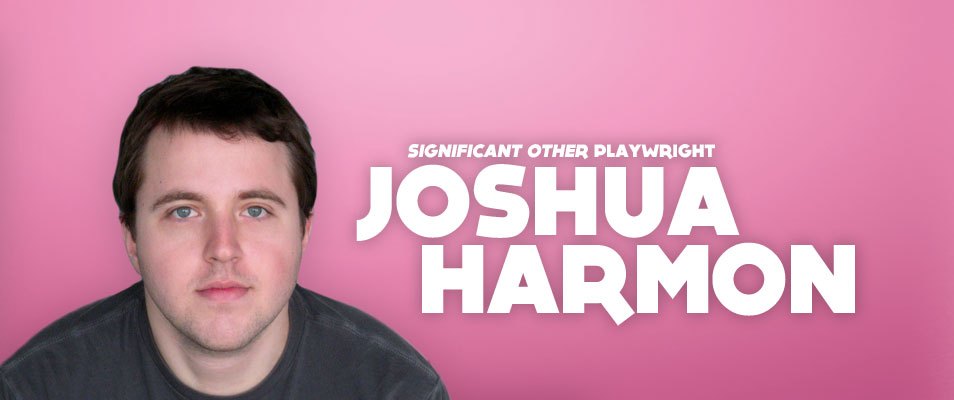

Playwright Joshua Harmon
Josh Harmon is currently busy preparing for the Broadway run of Significant Other, but SpeakEasy Artistic Associate Walt McGough caught up with him for an e-mail interview about our production of the show, and what Harmon’s been up to since his Bad Jews last appeared on our stage two seasons ago. Harmon shared his thoughts on friendship, loneliness, the necessity of a good wedding cake, and whether Beyoncé is as good live as we all hope.
Last time we did an interview, it was for SpeakEasy’s production of Bad Jews in 2014. Since then, Bad Jews has continued to be one of the most produced plays in the country, Significant Other had its run at Roundabout and was announced as headed to Broadway, and you wrote a show for the Rockettes. So I guess my first question is: how’s things?
Hi Walt. Things have been good. I guess first things first, I’ll put the rumors to bed: Yes, it’s true—I did breathe the same air as Beyoncé for more than two hours. (I saw her at Citi Field this summer and she exceeded every hope wish dream prayer etc. I ever had.) Everything else pales in comparison. But I’ve been working on some new plays since Bad Jews, and I’m starting to gear up for Significant Other‘s transfer to Broadway, which I still haven’t wrapped my head around—a new play on Broadway without movie stars? It’s basically unheard of. Very brave and wonderful producers to thank for that. I’ve also been teaching more, which I really enjoy.
Jordan’s relationship with his friends is central to the play, but his Grandmother also plays a massive role in his life, and, in many ways, the things she’s dealing with mirror his own problems. Was she a presence from the start?
She was. I had an inkling early on that she was essential to this story, though I couldn’t articulate why. But as we dug into those scenes in rehearsal, it became clear that even though they sit on opposite ends of life, Jordan and Helene’s experiences are radically similar in their day-to-day lives: they eat dinner alone, they watch TV alone, they go to sleep alone, they grocery shop for one. The difference, of course, is Helene has experienced so much that Jordan longs to know for himself—she had a happy marriage and raised a family. But in the end, loneliness is always lurking—we never fully escape its grasp. Jordan and Helene are riding the same crest of the wave, even if they don’t always have the language to communicate to each other the similarity of their experiences or pain.
Friendship and companionship are huge aspects of the play, but there’s also a real underpinning of longing and loneliness to the proceedings. Is there a way, in your opinion, to talk about one without the other?
Not really. The yin of a youthful friendship lives side by side with the yang of loneliness and isolation. In act one of the play, we’re meant to experience the joy of a loving, close-knit group of friends, so that in act two, as that group breaks apart, we feel its loss keenly. People may remain friends, but as their lives change, the friendship changes. Two single friends facing the world together are going to relate to each other in a very different way when one of those friends falls madly, wildly in love. The disparity of what one friend needs from the other, that he used to get but gets no longer, can create a real sense of loss.
So much of this play revolves around the rituals of weddings: the bachelorette parties, the dances, the outfits. How detailed did you get when you were thinking about each character’s Big Day while you were writing?
I was less concerned with the individual details of each event, and more with how the relentlessness of it all weighed on Jordan. The play is structured like a tornado: it picks Jordan up in one spot, spins him around a cyclone of repeated events—bachelorette parties, first dates, weddings, visits to his Grandmother—and ultimately drops him off in a new spot. He doesn’t end the play where he started, and we can sense that in how he relates to all of these events. Kiki’s wedding is exciting and new, but by the time he gets to Laura’s wedding, he can’t muster the energy anymore to be excited about watching yet another mostly hideous daddy-daughter dance.
As I watched the play in rehearsal, it struck me that when Jordan and Laura and Vanessa dance together at Kiki’s wedding, they’re having so much more fun than anyone else at that wedding. It was a real lesson in what is lost when we leave our childish ways and couple up. There’s so much pressure to find “the one,” but the joy those three friends experience together can’t be matched. It’s a very painful moment, to see the almost ecstatic joy that they once had, that is sacrificed as they grow up.
Most of the characters in Significant Other, like the characters in Bad Jews, are young, and (I’m assuming) close to the age you were when you started writing. But both plays also had multi-year developmental periods before they were produced. Does putting a few years between you and your characters as you work on a play feel like a necessary step of the process for you? Or do you still feel right there in the room with them?
The nature of new play development is slow, so you don’t really have a choice about putting distance between who you were when you wrote the play and who you are when it’s produced. I first started thinking about this play in 2011, wrote the first draft in 2012, had a workshop of the play in 2014, followed by several more workshops and readings, it was produced in 2015, and now I’m answering these questions in 2016 and gearing up for the Broadway production in 2017. So if you’re fortunate enough to get a production of a play, there’s almost always a lot of distance between when you began writing it and when it’s produced. But I find that distance useful. I like to think the need I felt to write the play, fueled by raw emotion, is what got it off the ground. As time elapses, you gain some critical distance, and can be more thoughtful about how the play is constructed, always trusting the person you were when you first started writing. I am the same person today I was when I wrote the play (I fundamentally don’t believe people ever really change), but my concerns are different. My mentor, Marsha Norman, has expressed to us that if you don’t write the play you want to write right now, you will never write it, and it will disappear. It’s not like a bank vault, where you can just go and collect ideas you’ve stored up. An essential ingredient is need, the need to examine something, and that need is bound up in a moment. So in many ways, I can look back at earlier plays almost as a diary—this is what was on my mind, this is how I felt, this is what I didn’t understand. Getting back into a room with those characters is a process of trusting who I was when I created those people.
What, for you, would be the worst thing someone could do at their own wedding?
You mean, besides having a wedding? I’m kidding. (Sort of). The best weddings are always the ones where everyone recognizes in some unspoken way that the couple getting married is one of equals. So the worst thing someone can do at their own wedding is marry the wrong person, and when you’re at a wedding where you feel that way, you’re usually not alone. Everyone around you feels that too on some level, which makes the wedding a very strange event where it’s not a celebration of the happy couple but a community trying to keep a secret from the couple that none of them are actually buying their happiness.
Other than marrying the right person, the only thing that’s truly essential is a great cake. A great cake at a wedding is like a great end to a play: if you finish on a high note, people will usually forgive the boring stuff that came before. Remember: you dragged me to some place I didn’t want to be, made me buy a new suit, fed me overcooked penne, stuck me at a table with your annoying friend from high school who talked my ear off about her boring job and how she met her fiancé who seems to have no interest in being at the wedding, let alone in being alive at all. After six hours of that, you better give me a THICK piece of cake and if it’s covered in kiwi or white chocolate (god forbid god forbid), we’re not friends anymore.
What’s one thing you would want our audience to know, or be thinking about, as they sit down to watch this play?
It’s been a really intense summer. Scary at times. Mostly depressing. So much violence, and violent rhetoric. I don’t know about your audience, but personally, I’m starting to feel numb. It’s increasingly difficult to muster the strength to respond appropriately when you learn, say, that 80 people have been slaughtered somewhere. That news should be shattering. But you can only be shattered so many times. The fact that I’m starting to feel numb frightens me.
This is all to say, when it feels like the world is falling apart outside, what does it mean to enter a theatre and listen to a story about someone feeling lonely at weddings? What place does a story like that have in the world right now? I don’t presume to know the answer to that question, but one of my hopes in writing the play was to create a space where audiences could have a deeply felt emotional experience. In a summer when so many of us are feeling scared and tense and numb, I hope this play offers some relief. I hope the comedy is a welcome break from the 24/7 news cycle. And for those in the audience who are moved by the play, I hope the experience of reconnecting with your emotional inner life will prove meaningful at a moment in time when, at least I, in response to everything happening around me, have been feeling at sea from my own humanity.
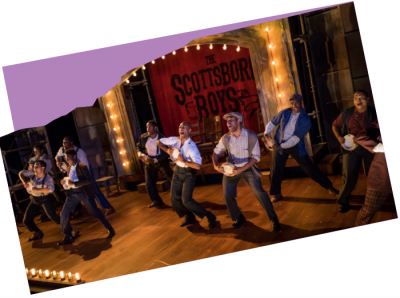 Past Productions
Past Productions Primary Trust
Primary Trust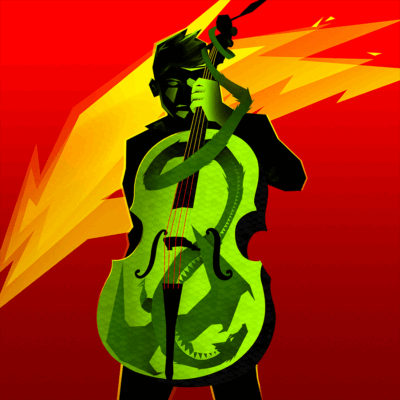 Lizard Boy: A NEW MUSICAL
Lizard Boy: A NEW MUSICAL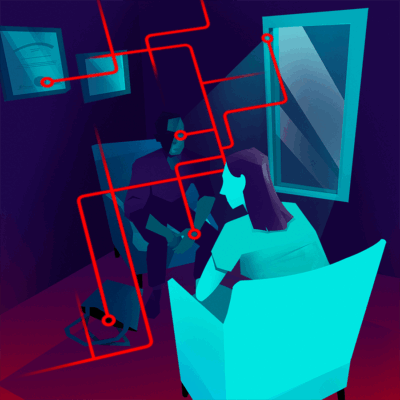 JOB
JOB The Antiquities
The Antiquities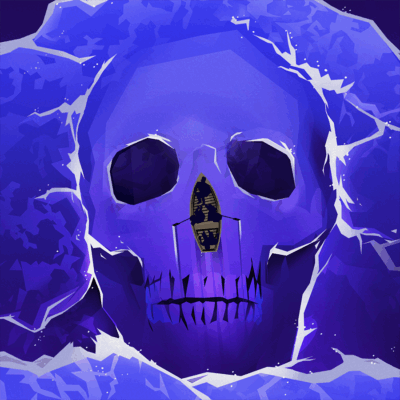 Swept Away
Swept Away




